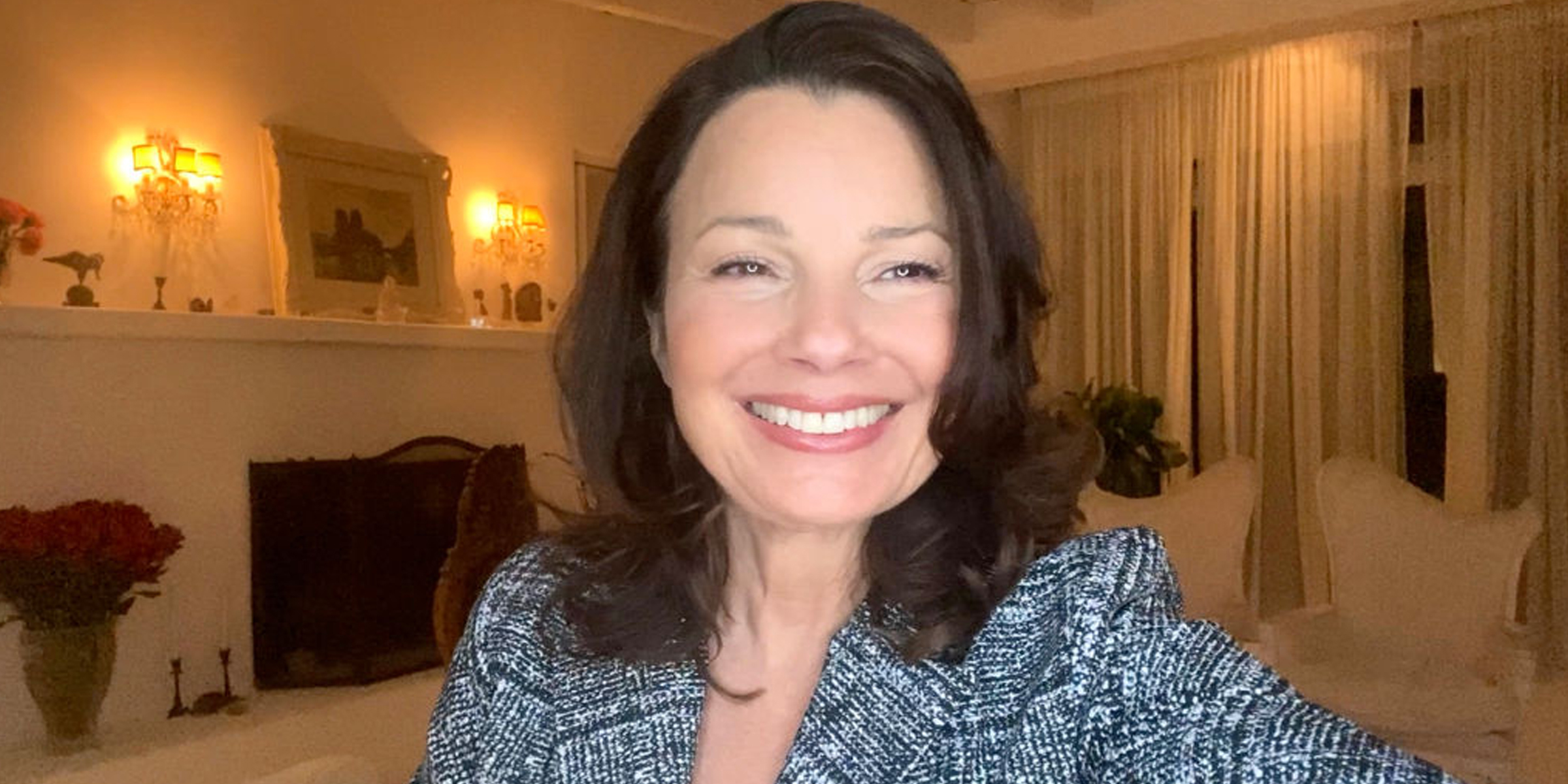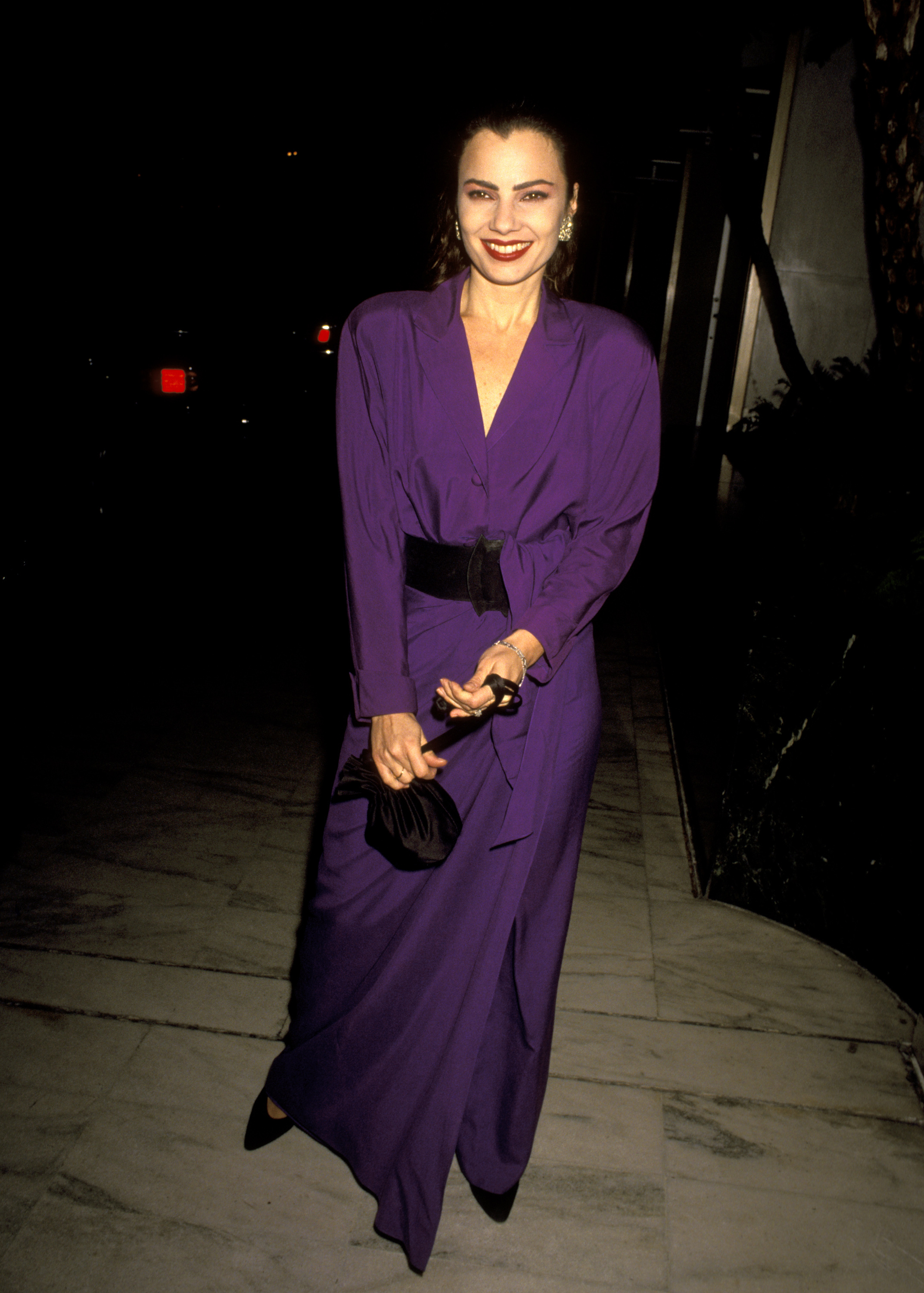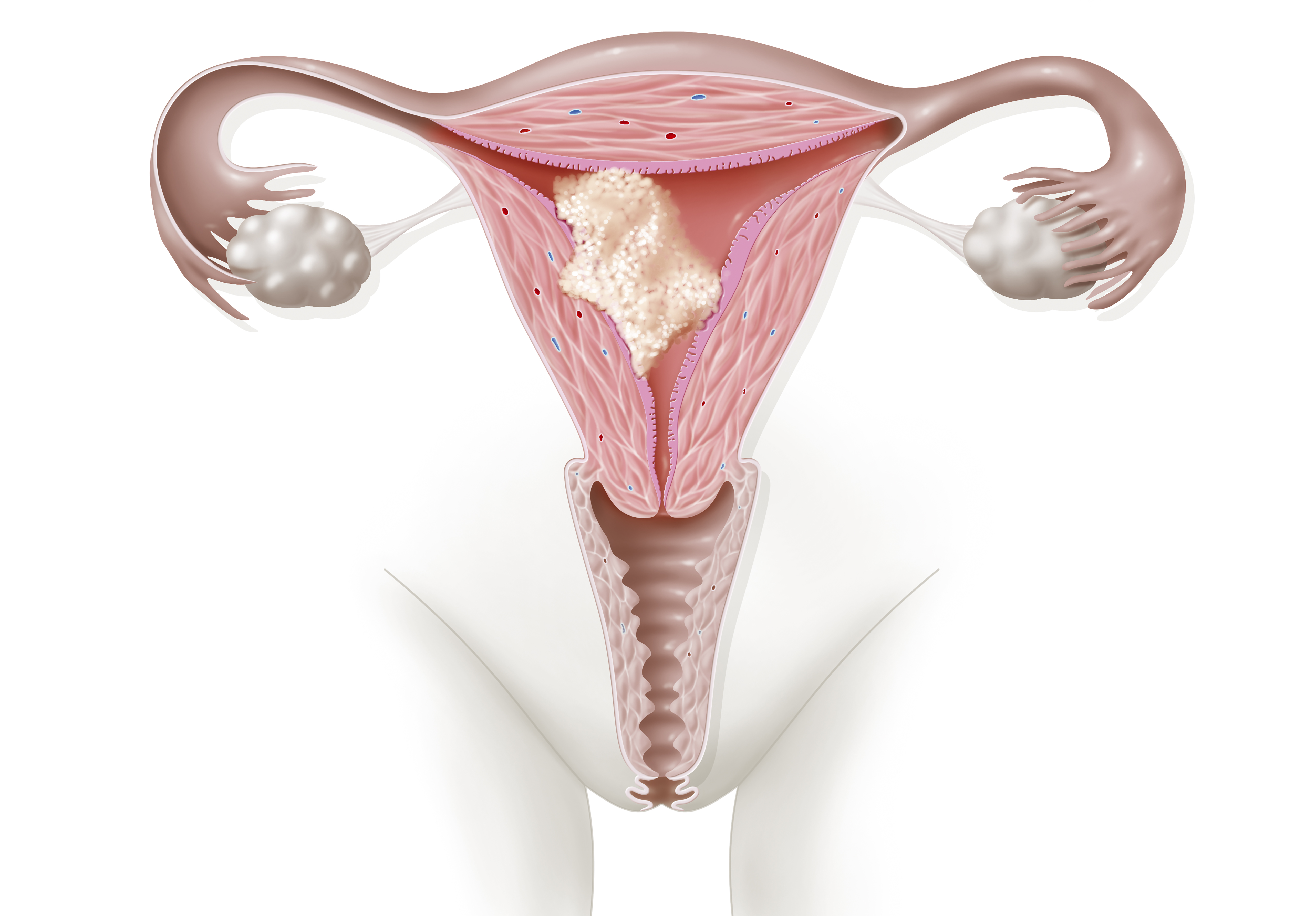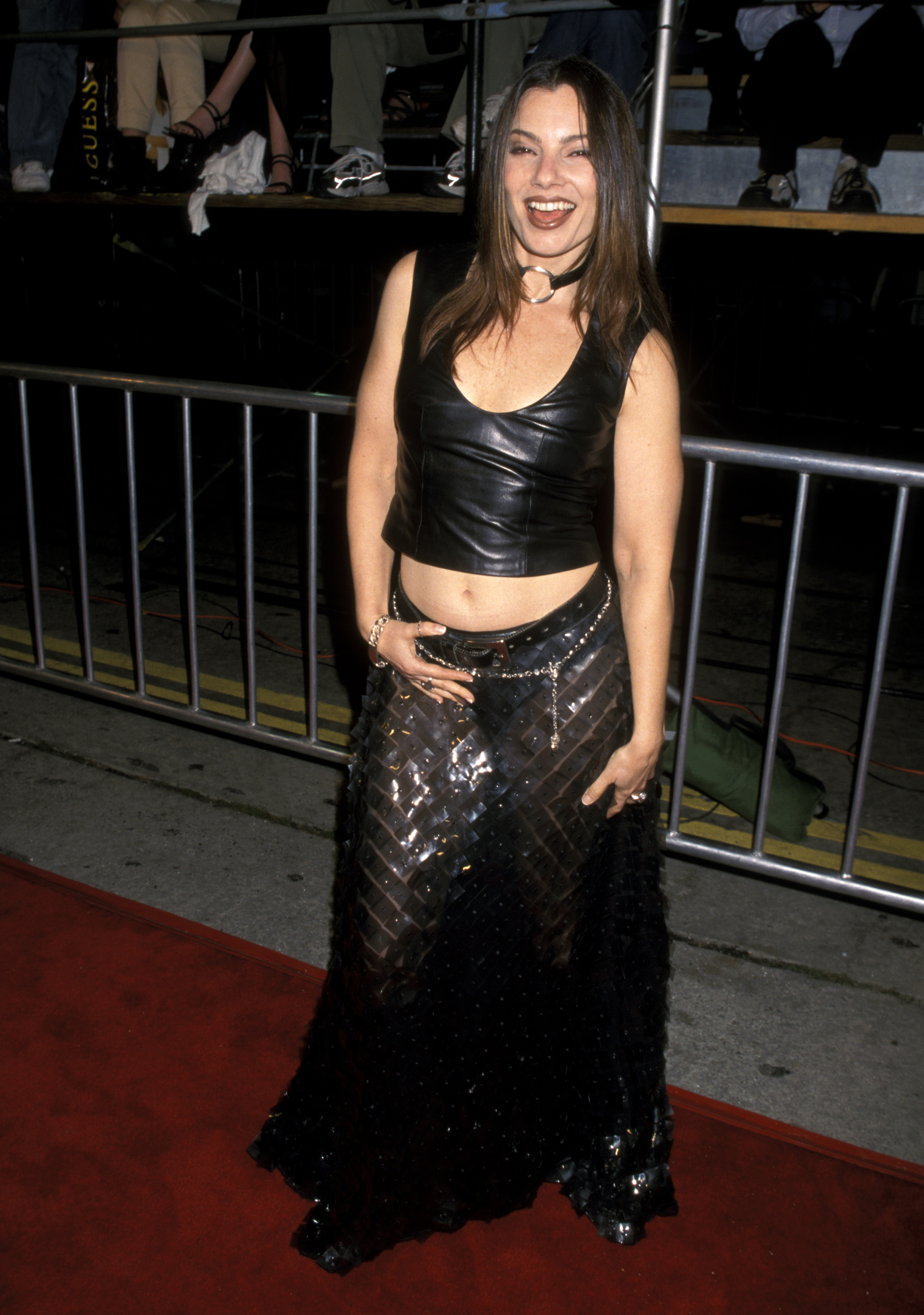
It Took This '90s TV Bombshell 2 Years and 8 Doctors to Get a Diagnosis – What Happened to Her?
This popular sitcom actress didn't audition for the fight of her life, but it found her anyway. After years of confusion, conflicting medical advice, and one pivotal phone call, she finally learned the truth behind her symptoms and uncovered something more powerful.
While managing a demanding entertainment career, a '90s television bombshell began experiencing persistent gynecological symptoms that did not improve with treatment. She consulted eight doctors over two years, each offering a different explanation but no real solution.

The actress poses with her dog, Chester, during the "Cadillac Man" premiere, on May 14, 1990 | Source: Getty Images
Her concerns were routinely dismissed until she pushed back, insisting something wasn't right. Only then did one doctor order a biopsy. Her eventual diagnosis came only after a test that had been previously dismissed based on her age and appearance.

The actress is pictured during the National Conference of Christians and Jews, on October 28, 1991 | Source: Getty Images
From Queens to Stardom: Her Unexpected Rise
Long before her health concerns began, she was already known to millions for her work in television. Raised in a working-class New York neighborhood, she stood out early for her confidence, comedic timing, and unmistakable voice. She met her future husband in high school, and together they would go on to form a creative partnership that helped launch her career.
Her first taste of Hollywood came in the late 1970s, with a brief but memorable role in a disco-era classic that launched a young John Travolta to superstardom. From there, she carved out a niche with small parts in films and TV throughout the '80s, often playing bold, funny, and street-smart women who sounded like they were straight out of New York — because they were.

The comic actress, circa 1990 | Source: Getty Images
Then came the idea that launched her into the spotlight: a sitcom inspired by a chance trip to England and her own Queens upbringing. The show was loud, stylish, and impossible to ignore, just like the actress at its center. It ran through most of the '90s, earned her Emmy nominations, and made her a pop culture fixture.
She wasn't just the face of the show — she co-created and produced it, becoming one of the few women at the time to have that level of control in prime-time television. But behind the scenes, as the spotlight burned brighter, she was quietly facing a new struggle that no amount of fame could shield her from.

The American actress pictured on December 12, 1993 | Source: Getty Images
When the Body Sends a Signal And No One Listens
During one of the busiest stretches of her career, she began experiencing unusual symptoms. She noticed light bleeding between periods and cramping after sex, subtle at first, but persistent. Over time, the symptoms became harder to ignore.
She saw one doctor, then another. Each time, she was told her symptoms were likely tied to hormonal shifts or early menopause. For two years, she consulted with eight different physicians. Four separate times, she was placed on hormone replacement therapy. Each time, the treatment failed to help, and sometimes made things worse.

The actress pictured at the Olympic Auditorium in Los Angeles on April 19, 1997 | Source: Getty Images
The bleeding increased. The cramping lingered. Still, doctors brushed her concerns. Her frustration kept building. She didn't match the usual patient profile for something more serious, they said. She was too young, too healthy, too thin. But despite all the reassurances, she continued to feel that something was wrong.
Eventually, as the symptoms escalated, she contacted her most recent doctor and insisted the treatment wasn't working. It was only then that the doctor agreed to perform an endometrial biopsy, a test doctors withheld from her for years. When the results came back, the answer was clear. And it was serious.

The actress poses during "The Spy Who Shagged Me" premiere on June 8, 1999 | Source: Getty Images
Betrayed by the System: A Hidden Crisis
The diagnosis was uterine cancer, specifically, adenocarcinoma. Uterine cancer includes two types: endometrial cancer, which is the most common, and uterine sarcoma, which is rare. Endometrial cancer typically develops after menopause.
According to the Cleveland Clinic, approximately 3 percent of women in the United States will be diagnosed with uterine cancer at some point in their lives, and about 65,000 women are diagnosed each year.

Illustration of endometrial (uterine) cancer showing a tumor that has spread into the uterine muscle but not yet reached the cervix. | Source: Getty Images
Symptoms of uterine cancer may include vaginal bleeding between periods before menopause, bleeding or spotting after menopause, lower abdominal pain or pelvic cramping, thin white or clear discharge in postmenopausal women, and prolonged or heavy bleeding in women over 40.
It was a condition that could have been caught much sooner with what the actress called a "ridiculously simple" test. Instead, it had taken two years, eight doctors, and worsening symptoms to reach that point. She described feeling "very betrayed" by the medical system, not just for missing the diagnosis, but for failing to even test for it.

The actress pictured during the "The World is Not Enough" Los Angeles premiere on November 8, 1999 | Source: Getty Images
"I realized that doctors are so bludgeoned by big business health insurance to go the least expensive route of diagnostic testing," she later shared. "This could cost you your life." In her case, the tumor was slow-growing and still in its early stage. That stroke of luck meant a successful recovery.

The actress poses during the 13th Annual American Comedy Awards on February 7, 1999 | Source: Getty Images
But the actress knew not everyone would be as fortunate. Uterine cancer symptoms are often mistaken for normal hormonal changes, and in more aggressive cancers like ovarian, delays in diagnosis can be fatal.
Her experience exposed a troubling pattern in women's healthcare, where symptoms are too often minimized, especially in patients who don't fit a standard profile. She quickly realized that her story was not unusual, and that pushed her to act.

The actress poses on November 30, 2023 | Source: Getty Images
Turning Pain Into Purpose: The Birth of 'Cancer Schmancer'
It's this experience that led actress Fran Drescher, widely recognized for her work in the 1990s television, to write a memoir about her diagnostic journey. Published in 2002, "Cancer Schmancer" chronicled her experience with delayed diagnosis, the challenges of navigating the healthcare system, and her eventual recovery.
While promoting the book, Drescher met many women with nearly identical stories — multiple doctors, misdiagnoses, and delays in getting the care they needed. "I wrote the book so that others wouldn't go through what I did," she said. "I very quickly realized that my experience is really quite common and happens often."
In 2007, she founded the Cancer Schmancer Movement and the Cancer Schmancer Foundation, a nonprofit focused on three pillars: prevention, early detection, and policy change. The goal, she said, was to shift people from being passive patients to informed medical consumers.
Drescher later served as a public diplomacy envoy for women's health under Presidents George W. Bush and Barack Obama. She has also become an advocate for legislative efforts tied to medical transparency, safer consumer products, and access to diagnostic tools.
The Emotional Reckoning: What Cancer Forced Her to Face
In the aftermath of her diagnosis, Drescher began confronting emotions she had long avoided. Therapy became a critical part of her recovery. She acknowledged that for years she had been more focused on caring for others than recognizing her own needs.
The cancer diagnosis forced her to slow down and reevaluate her life. It also led her to recognize patterns of emotional avoidance, including a tendency to mask personal pain by supporting others. Through therapy, she worked through feelings of guilt, fear, and vulnerability, experiences she later described as essential to her personal growth.
She began to view her advocacy work not only as a public mission but also as a means of reclaiming control over her own life. By sharing her story and creating a platform for others, she found a renewed sense of purpose — one that allowed her to channel the trauma of misdiagnosis into meaningful change.
Advice for Women: Be Loud, Be Relentless
Drescher often urges women to take an active role in their healthcare and not to hesitate when something feels off. She recommends bringing a trusted friend or family member to medical appointments — someone who can ask questions, take notes, and help keep track of unfamiliar terms or procedures.
She advises, "They will write down the answers and learn how to write difficult medical spellings. So you could go home, go online, and start doing your own research." Drescher emphasizes the importance of persistence.

Fran Drescher poses at the 30th Annual Screen Actors Guild Awards on February 24, 2024 | Source: Getty Images
If a diagnosis or treatment plan doesn't feel right, she encourages women to seek second, third, or even eighth opinions. Her own experience, she says, is proof that self-advocacy can make the difference between a missed diagnosis and an early one.
She also advocates for a more holistic approach to health, highlighting the connection between lifestyle and immune function. "We have to support our immune system so that our immune system can support us," she stated. "And we have to do that right away. Because there isn't a moment to lose."

Fran Drescher arrives at the Vanity Fair Oscar Party on March 10, 2024 | Source: Getty Images
Why Her Story Still Matters Today
Drescher's experience resonates with many women. Her story stresses how easily medical concerns can be overlooked, even when symptoms are well-documented and ongoing.
By speaking openly about her journey, she has helped bring greater attention to issues surrounding misdiagnosis, health profiling, and the need for patient advocacy. Through her foundation, books, and policy work, she continues to push for earlier detection and stronger public awareness.

Fran Drescher attends the GRAMMYs on the Hill Advocacy Day Awards Dinner on April 8, 2025 | Source: Getty Images
Her message remains consistent: know your body, ask questions, and don't settle for incomplete answers. The stakes, as her story proves, are far too high.
The information in this article is not intended or implied to be a substitute for professional medical advice, diagnosis or treatment. All content, including text, and images contained on news.AmoMama.com, or available through news.AmoMama.com is for general information purposes only. news.AmoMama.com does not take responsibility for any action taken as a result of reading this article. Before undertaking any course of treatment please consult with your healthcare provider.
